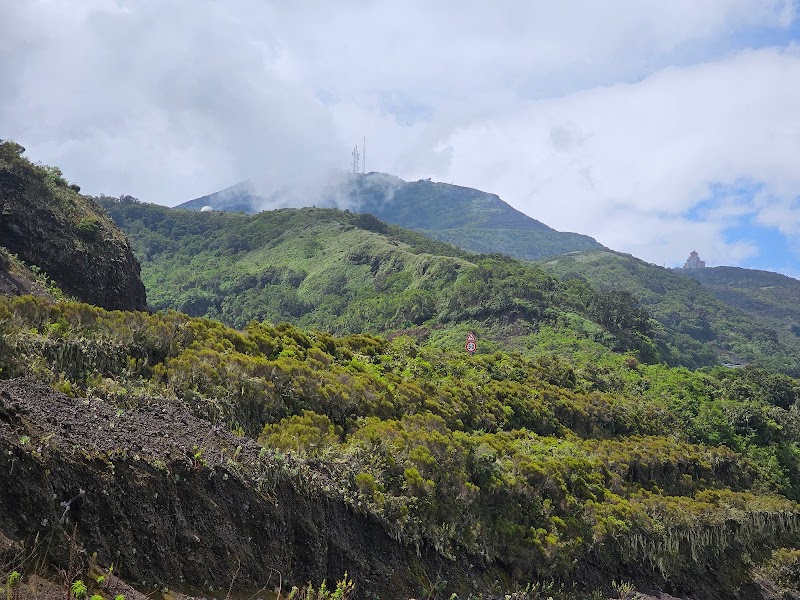
Equatorial Guinea Independence Day: Celebrating Freedom and Culture in Malabo
Experience the vibrant pulse of Equatorial Guinea’s Independence Day in Malabo, where history and culture come alive through colorful parades, music, and community spirit. This celebration offers visitors a unique window into the nation’s proud identity and diverse traditions, set against the backdrop of lush island landscapes and warm equatorial sun.
Stay Hydrated Throughout the Day
With Malabo’s tropical climate, carrying water is crucial to avoid dehydration during the long outdoor celebrations.
Wear Comfortable Walking Shoes
Parades and markets involve extensive walking on streets and uneven pavement; sturdy shoes will prevent discomfort.
Arrive Early to Secure Good Viewing Spots
Popular events fill public squares quickly; early arrival ensures you won’t miss key moments like the flag-raising ceremony.
Respect Local Customs and Photography Boundaries
Always ask permission before photographing individuals, especially during traditional dances and ceremonies to maintain courtesy.
Equatorial Guinea Independence Day: Celebrating Freedom and Culture in Malabo
Every October 12th, Malabo transforms into a vibrant stage where history meets the pulse of modern life. Equatorial Guinea’s Independence Day marks the nation’s break from colonial rule in 1968, bringing locals and visitors together in a display of pride, music, and community. The city streets fill with parades, traditional dances, and colorful displays that narrate the country’s journey with unmistakable energy.
Malabo’s ocean breeze carries the rhythm of drums and cheers as people gather near landmarks like the Plaza de la Independencia. Here, the colonial architecture stands as a quiet observer to the celebrations, while nearby market vendors offer local dishes such as "mbanga" (palm nut soup) and "ekuk" (cassava-based meals), grounding the festivity in rich culinary traditions.
The day starts early. Public squares bloom with flags and banners, while children and elders alike don traditional attire, embracing their heritage through song and dance. The Parade of Nations isn’t just a spectacle but a walking lesson in the country’s ethnic diversity—Bubi, Fang, Ndowe, and others showcasing their unique contributions to the fabric of Equatorial Guinea.
For visitors, the event offers more than entertainment. It’s a practical opportunity to engage with locals, understand cultural nuances, and support community artisans. Plan for crowds and heat; hydration is essential as the tropical sun can press down relentlessly by midday. Footwear designed for city walking with quick access to shade will keep you comfortable during long hours outdoors.
Beyond Malabo’s urban edge, the natural backdrop stands ready for exploration. Pico Basile, the island’s tallest peak, offers hikers a challenging but rewarding climb—should you want to blend cultural festivity with nature. The Independence Day celebrations provide a window into a fiercely proud nation, honoring a freedom fought hard for, and lived fully today.
To make the most of your visit, arrive early to catch the solemn flag-raising ceremony, explore the local crafts market bursting with handmade fabrics and carvings, and don't miss the evening concerts where modern musical influences collide with traditional sounds. Independence Day in Malabo isn't simply a date on the calendar; it’s a living story, inviting you to participate, witness, and appreciate Equatorial Guinea’s distinctive identity and vibrant community.
Nearby Trips
All Adventures
Boat Charters
Water Activities
Adventures near Malabo, Equatorial Guinea
Discover the unique and memorable adventures that make Malabo, Equatorial Guinea special.
Frequently Asked Questions
What time do the Independence Day celebrations start in Malabo?
Events typically begin early, around 8 AM, with the flag-raising ceremony, followed by parades that continue throughout the day.
Are tourists allowed to participate in the traditional dances?
While tourists can observe and sometimes are invited to join informal dances, it’s best to respect boundaries and wait for local invitation.
Where is the best place to watch the parade?
Plaza de la Independencia offers excellent close-up views, but early arrival is essential to secure a good spot owing to large crowds.
What local foods are must-tries during the celebration?
"Mbanga" (palm nut soup) and "ekuk" (cassava-based dishes) are local favorites found at festival markets and offer authentic tastes of Equatorial Guinea.
Is it safe to explore Malabo during the celebrations?
Malabo is generally safe during Independence Day, but watch for pickpockets in crowded areas and follow guidance from local authorities.
Can I visit Pico Basile on Independence Day?
The day’s festivities are city-centric; however, scheduling a hike to Pico Basile before or after the celebrations maximizes your experience.
Recommended Gear
Lightweight Walking Shoes
Supports comfort and stability on city pavements and uneven surfaces during celebrations.
Reusable Water Bottle
Staying hydrated under equatorial sun is critical; refill stations may be limited during events.
Sun Protection (hat, sunscreen)
Protects skin and eyes during long hours outdoors in strong sunlight.
Light Rain Jacket or Poncho
Useful for sudden tropical showers, especially in the afternoon.
Local Insights
Hidden Gems
- "Roque La Loma viewpoint offers sweeping harbor views and is quieter during Independence Day chaos."
- "Local artisan stalls near Mercado Central offer handcrafted souvenirs reflecting ethnic diversity."
Wildlife
- "Watch for native birds like the malle willow warbler and island fruit bats that appear near urban trees."
- "In nearby forested areas, endemic butterflies and small primates illustrate Bioko Island’s rich biodiversity."
History
"Independence Day commemorates October 12, 1968, when Equatorial Guinea gained freedom from Spanish colonial rule—a milestone marked by decades of cultural resilience and nation-building."
